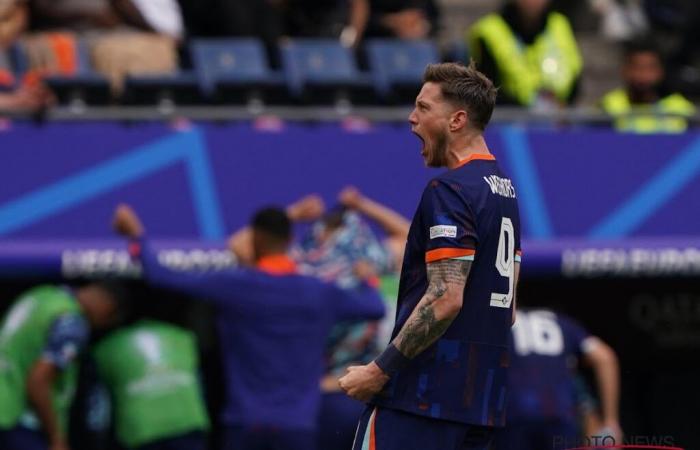The Netherlands beat Hungary 4-0 on Saturday in the Nations League. But it’s obviously what happened to Adam Szalai that left its mark.
The match was interrupted for around ten minutes and Szalai received the necessary medical treatment. A tent even had to be erected to hide the Hungarian staff during the intervention of the medical services.
Finally, Adam Szalai was carried away on a stretcher to applause. An update on his situation was provided just before halftime.
The Hungarian Football Federation later announced that he was fine. Later that evening, Szalai himself shared a message on Instagram. As soon as he was placed on a stretcher, it became clear that there was more fear than harm, and the Hungarian players decided to continue playing.
But not everyone seemed as affected by the situation. Immediately after this event, Senza Weghorst gave the Netherlands the lead from the penalty spot… and celebrated his goal exuberantly, as if nothing had happened.
“When you score in these circumstances and you celebrate like that, like you just scored the winning goal in the World Cup final… it makes me sick,” Rafael van der Vaart said. NON. “A little more moderation would have been necessary. It was really shameful to celebrate like this,” added Pierre van Hooijdonk.
For Latest Updates Follow us on Google News
Tags
Monde
Interviewer: Dr. Smith, can you elaborate on the psychological impact of public criticism on a player’s mental health after an incident like this? How can players cope with negative feedback from fans and analysts?
As an editor for world-today-news.com, I would like to conduct an interview with two guests about the recent event in the Netherlands vs Hungary match. The first guest will be Mr. Senza Weghorst, the player who scored the winning goal during this match, and the second guest will be a sports psychologist who can provide insight into the emotions behind such intense celebrations.
Interviewer: Hello Mr. Weghorst, thank you for joining us today. Can you tell us about your thoughts on scoring a goal during the tense moment when Adam Szalai was injured and carried off the field?
Senza Weghorst: Hello, of course. Scoring a goal is always an exciting moment for any player, and in the heat of the moment, we don’t always think about the surroundings. I was just happy to score and help my team win, that’s all.
Interviewer: Mr. Van Hooijdonk and Van der Vaart have expressed their disappointment with your celebration. What would you say to them and the critics who think your celebration was inappropriate?
Senza Weghorst: Well, everyone reacts differently to situations like these. Celebrating goals is part of the game, and I can’t control how I feel when I score. However, I understand how my actions might have appeared insensitive to others. If I had known the severity of Adam’s injury, I would have toned down my celebration for sure. But in the moment, it wasn’t intentional and I was just enjoying the moment.
Interviewer: That’s a fair point. Moving on to our next guest, Dr. Smith, as a sports psychologist, what do you think goes through a player’s mind during such high-pressure situations like these? And how can we help them manage their emotions better?
Dr. Smith: Hello, thank you for having me. During high-pressure situations, players often experience an adrenaline rush which can lead to intense emotions and reactions. It’s important for them to manage these emotions and stay focused on the task at hand. One way to do this is by taking deep breaths, mentally regrouping, and reminding themselves of their objective. Coaches can also help by creating a supportive


